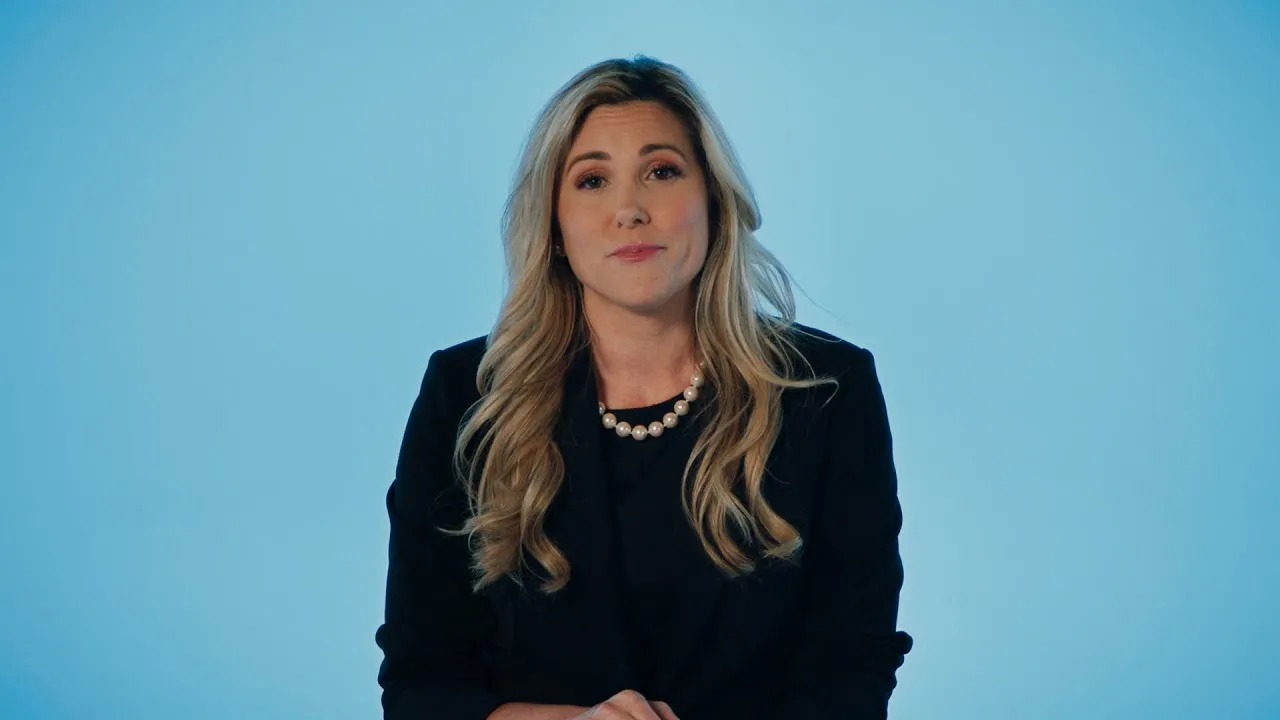
We know personal injury cases.
We've helped thousands of people recover physically, financially, and emotionally after serious injuries.
Start your claimThe attorney shown above may not be licensed in your state. To find an attorney licensed in your area, please visit our attorney page.

The attorney shown above may not be licensed in your state. To find an attorney licensed in your area, please visit our attorney page.
Meet Our Personal Injury Attorneys
Our dedicated personal injury attorneys manage every aspect of your case, allowing you to concentrate on healing. From consultation to resolution, we strive to secure the compensation you deserve.
The attorneys shown in these photos may not be licensed in your state. To find an attorney licensed in your area, please visit our attorney page.
Morgan & Morgan's Personal Injury Lawyers Make All the Difference
Don’t Be Lowballed by an Insurance Company
Covering All Types of Personal Injury Cases
Proven Experience, Powerful Results
Legal Help with No Upfront Costs
Results may vary depending on your particular facts and legal circumstances.
Our Results
Results may vary depending on your particular facts and legal circumstances.
The Right Firm for Big Wins
Insurance companies know us—and they know we fight for every dollar.
Results may vary depending on your particular facts and legal circumstances. The attorneys shown in these photos may not be licensed in your state. To find an attorney licensed in your area, please visit our attorney page.
Results may vary depending on your particular facts and legal circumstances. The attorneys shown in these photos may not be licensed in your state. To find an attorney licensed in your area, please visit our attorney page.
Ways We Can Help
Injured in a car accident?
Hurt in a slip and fall?
Injured on the job?
Over 50 Case Types, Like:
View AllSocial Security
Dangerous Drugs
Defective Products
Medical Malpractice
Nursing Home Abuse
Labor & Employment
Truck Accidents
Class Actions
In Their Words
Based on select nationwide reviews.
Personal injury cases need three things.
Injury or damages
Duty of care
Breach of duty
What's a personal injury case worth?
Watch Morgan & Morgan attorneys explain how case value is calculated.

The attorneys shown in this video may not be licensed in your state. To find an attorney licensed in your area, please visit our attorney page.
8 Steps to Take After a Personal Injury Incident
From documenting your injury to safeguarding your legal rights, these steps can help strengthen your personal injury claim.
Fighting For the People
Backed by America’s Largest Injury Law Firm.
$30 Billion
Recovered for clients
nationwide700,000+
Clients and families
served1,000+
Attorneys across
the country1
Click may change your life

The attorney featured above is licensed in Florida. For a full list of attorneys in your state please visit our attorney page.
Results may vary depending on your particular facts and legal circumstances.
Common Injuries
Traumatic Brain Injuries (TBI)
Broken Bones
Spinal Cord Injuries
Burns
Internal Injuries
Soft Tissue Injuries
Learn More
Injured and not sure what to do next?
We'll guide you through everything you need to know.
How do I know if I have a personal injury claim?
Every personal injury case is different. But in all personal injury claims, there are a few elements that we look at to see if an injury victim might have a case. We check to see if:
- There were damages. Personal injury lawsuits are filed to recover “damages.” These include costs like medical expenses, lost wages, and pain and suffering. An injury must have significant associated costs to qualify for a lawsuit, which vary by state.
- Someone else was at fault. To get compensation from someone else’s insurance company, they must have acted negligently in a way that caused or contributed to your injuries.
- There’s enough insurance coverage. Personal injury lawsuits are usually filed against insurance companies, not individuals. Those responsible must have enough insurance coverage to cover the injured person’s medical expenses or to fully compensate them for their injuries.
Not sure if you have a case? Get in touch. We're here to help.
What should I do immediately after being injured in an accident?
The moments following an accident can be overwhelming, but taking the right steps is important for both your well-being and your potential legal case.
First and foremost, seek medical attention immediately, even if your injuries seem minor. Certain injuries may not show symptoms for days or even weeks. Prompt medical care ensures your injuries are properly treated and documented, which is important for your personal injury claim.
If you are able, gather evidence at the scene—take photos, collect contact information from witnesses, and file a police report.
After addressing your immediate medical needs, contact an experienced personal injury lawyer at Morgan & Morgan. Our team can help guide you through the next steps, protect your rights, and begin building your case.
What practice areas or types of cases does Morgan & Morgan handle?
Personal injury lawyers handle a wide range of cases where someone has been injured due to another else's negligence or wrongdoing. These attorneys specialize in helping victims recover compensation for their injuries, lost wages, and other damages.
Car Accidents
Car accidents are one of the most common personal injury cases. Whether the cause is distracted driving, speeding, or reckless behavior, a personal injury lawyer helps victims recover compensation for injuries, medical expenses, lost wages, and property damage.
Truck Accidents
Truck accidents can involve multiple parties, such as the truck driver, trucking company, and manufacturers. Personal injury lawyers work to investigate the cause of the accident and help victims secure compensation for their injuries, which may be more severe due to the size and weight of commercial trucks.
Motorcycle Accidents
Motorcycle accident victims often face severe injuries due to their exposure on the road. Personal injury lawyers help victims recover damages for medical bills, rehabilitation costs, and pain and suffering caused by negligent drivers.
Slip and Fall Accidents
These accidents occur when a person slips or trips on someone else’s property due to unsafe conditions, such as wet floors, uneven surfaces, poor lighting. Property owners have a duty to maintain safe premises, and personal injury lawyers help victims hold negligent owners accountable.
Medical Malpractice
Medical malpractice cases arise when a healthcare professional fails to provide adequate care, leading to injury, illness, or death. Common malpractice claims include misdiagnosis, surgical errors, medication mistakes, and birth injuries. Personal injury lawyers help victims pursue compensation for the harm caused by negligent medical professionals.
Wrongful Death
A wrongful death claim is filed when someone dies due to another party’s negligence or misconduct, such as in a car accident, workplace incident, or medical malpractice case. Personal injury lawyers represent the family members of the deceased, seeking compensation for funeral expenses, lost income, and emotional suffering.
Workplace Accidents
Injuries that occur on the job can lead to workers’ compensation claims, but personal injury lawyers may also handle third-party lawsuits if someone other than the employer was at fault, such as equipment manufacturers. Common workplace injuries include falls, equipment accidents, and exposure to hazardous substances.
Product Liability
Product liability cases arise when a defective product causes injury. This could involve anything from faulty car parts to dangerous household appliances. Personal injury lawyers work to prove that the product was defectively designed, manufactured, or labeled, and they help victims seek compensation from manufacturers, distributors, or retailers.
Premises Liability
In addition to slip and fall cases, premises liability covers other injuries that occur on someone else’s property, such as swimming pool accidents, dog bites, or inadequate security leading to assaults. Property owners can be held liable if they fail to maintain safe conditions.
Bicycle Accidents
Bicycle accident cases often involve collisions with motor vehicles. Personal injury lawyers help cyclists who have been injured due to driver negligence, unsafe road conditions, or defective bike parts.
Pedestrian Accidents
Pedestrians are especially vulnerable in traffic accidents. If a driver fails to yield, is speeding, or is distracted, they may hit a pedestrian, resulting in serious injury or death. Personal injury lawyers advocate for pedestrian victims to recover compensation for their losses.
Construction Accidents
Construction sites are dangerous, and workers or bystanders can suffer serious injuries from falls, machinery accidents, or unsafe conditions. In addition to workers’ compensation, construction site accident lawyers may help victims pursue additional claims against third parties.
Dog Bites and Animal Attacks
Dog owners are often held liable when their pets attack or bite someone. Personal injury lawyers represent victims of dog bites, helping them recover compensation for medical expenses, lost income, and emotional distress.
Nursing Home Abuse
Nursing home abuse cases involve the mistreatment, neglect, or abuse of elderly residents by caregivers. Personal injury lawyers represent victims and their families, seeking compensation for medical costs, emotional suffering, and relocation expenses.
Assault and Battery
These are intentional tort cases where a person has been physically harmed by another individual through violence. Personal injury lawyers help victims of assaults seek compensation for their injuries, pain, and suffering, in addition to pursuing criminal charges.
Defective Drugs and Medical Devices
If a prescription drug or medical device, such as a hip implant or a pacemaker, causes harm due to design flaws, manufacturing errors, or inadequate warnings, personal injury lawyers can file product liability claims against the manufacturers.
Toxic Exposure
Toxic exposure cases arise when individuals are harmed by hazardous substances like chemicals, asbestos, lead, or mold. These cases often involve proving that a company, landlord, or employer failed to protect people from exposure.
Train and Public Transportation Accidents
Public transportation accidents, including train crashes, bus accidents, and subway incidents, can result in injuries to passengers. Personal injury lawyers help victims pursue claims against transportation authorities, operators, or third-party contractors.
Boating Accidents
Boating accidents, whether involving recreational boats, jet skis, or commercial vessels, can lead to serious injuries. Personal injury lawyers help victims pursue claims against negligent operators or boat manufacturers.
Aviation Accidents
Personal injury lawyers also handle cases involving plane crashes or other aviation-related accidents. These cases can involve negligence by the pilot, airline, or manufacturer and often require specialized knowledge of aviation law.
Each type of case has its own nuances, and our team is experienced in handling a variety of personal injury claims.
How much does it cost to hire a personal injury law firm like Morgan & Morgan? Can I get a free case evaluation?
Our team of experienced attorneys are also local members of the community.
They are also backed by the largest personal injury law firm in America, so while you receive personal care from local experienced attorneys, you also get the benefits of Morgan & Morgan’s extensive resources, proven track record, and robust representation.
At Morgan & Morgan, we fight For the People—not the powerful—and in our over 35 years of experience as a family firm, we have recovered over $30 billion for clients, so that they could get the compensation they needed and deserved to move forward with their lives after tragedy struck.
We take personal injury seriously, and we don’t believe you should bear the consequences of someone else’s negligence. Plus, we understand that these accidents can be incredibly challenging, and that’s why we don’t think hiring a lawyer should be.
Hiring a lawyer from Morgan & Morgan is easy, and you can get started in minutes with a free case evaluation.
How much does it cost to hire a personal injury lawyer near me at Morgan & Morgan?
Morgan & Morgan’s attorneys work on a contingency fee basis, meaning that there are no upfront fees or expenses until your case comes to a successful conclusion. That’s right—the Fee Is Free™, and you only pay if we win.
Our fee is a percentage of the settlement or verdict amount, ensuring we are motivated to achieve the best possible outcome for you.
Do I have to pay for a consultation or case review with a personal injury attorney?
No. Consultations at Morgan & Morgan are completely free. We believe everyone deserves access to legal advice, regardless of their financial situation.
Hiring one of our lawyers is easy, and you can get started in minutes with a free case evaluation on our site or by phone.
How long after an injury can I file my claim?
The amount of time you have to file a personal injury claim, known as the statute of limitations, varies by state and the specifics of your case. However, some exceptions may apply, such as in cases involving minors, government entities, or when the injury wasn’t discovered right away.
It's important to file your claim as soon as possible to preserve your legal rights. Failing to file within the statute of limitations could result in your case being dismissed, meaning you may lose the opportunity to recover compensation for your injuries.
Since deadlines can vary by state and situation, it's best to consult with a personal injury attorney as soon as possible after the incident to understand the specific timeline for your case. An attorney can help ensure your claim is filed correctly and on time.
What sort of compensation can I recover from a personal injury case?
Compensation can vary widely depending on the specifics of your case, but generally, it could include:
Medical Expenses
You could recover the costs of medical treatment related to your injury, including hospital bills, doctor visits, surgery, physical therapy, prescription medications, and any future medical care you may need.
Lost Wages
If your injury has caused you to miss work, you may be compensated for lost wages. This includes not only the income you have already lost but also any future earnings you may be unable to earn due to your injury.
Pain and Suffering
Compensation for pain and suffering addresses the physical pain and emotional distress caused by your injury. This could include compensation for chronic pain, anxiety, depression, and reduced quality of life.
Property Damage
If your personal property was damaged as a result of the incident, you might be entitled to compensation for repair or replacement costs. This often applies to cases involving car accidents, where vehicle damage is a significant factor.
Loss of Consortium
In some cases, your spouse or family members may be entitled to compensation for the loss of companionship, support, and services resulting from your injury.
Punitive Damages
In cases where the defendant's actions were particularly egregious or reckless, you might be awarded punitive damages. These are intended to punish the wrongdoer and deter similar behavior in the future.
Disability and Disfigurement
If your injury has resulted in a long-term or permanent disability or disfigurement, you may be entitled to compensation for the impact on your ability to work and perform everyday activities, as well as the emotional toll of such changes.
Other Related Expenses
You may also recover other expenses related to your injury, such as transportation costs for medical appointments, home modifications needed to accommodate a disability, and costs for assistive devices like wheelchairs.
Every case is unique, and the specific compensation you may recover will depend on the circumstances of your injury and the extent of your damages. At Morgan & Morgan, our experienced attorneys will thoroughly assess your case and fight to ensure you receive the full compensation you deserve.
What happens after I submit my personal injury claim?
Once you submit your claim, our team will begin a thorough investigation, gather evidence, and build a strong case on your behalf. We will keep you informed of our progress and work diligently to secure the best possible outcome for you. If a fair settlement cannot be reached, we are prepared to take your case to trial.
For more information or to get a free case evaluation, contact Morgan & Morgan today. We are here to help you navigate the legal process and fight for the justice and compensation you deserve.
Who will be on my case team?
When you hire Morgan & Morgan, you don’t just hire a lawyer; you hire the largest personal injury law firm in the country with an army of over 1,000 lawyers and offices in all 50 states and Washington, D.C.
Your case will be handled by a dedicated team of compassionate professionals, including personal injury lawyers, paralegals, and support staff. You will be assigned a care team that includes a primary attorney who will oversee your case and ensure you receive personalized attention throughout the process.
When do I meet with my lawyer?
After your initial consultation, your care team will schedule regular meetings to discuss your case, provide updates, and prepare you for any upcoming proceedings. We are committed to maintaining open lines of communication and keeping you informed every step of the way.
These meetings can be handled in person, virtually, and by phone, depending on your case’s requirements and your ability to do so.
Do you have attorneys who speak multiple languages?
Yes, Morgan & Morgan has a diverse team of attorneys who speak multiple languages, including Spanish. We strive to ensure that language barriers do not prevent you from receiving the legal representation you deserve.
How long does a personal injury lawsuit take to resolve?
The duration of a personal injury lawsuit varies depending on the complexity of the case, the severity of the injuries, and the willingness of the parties to reach a settlement. Some cases may be resolved in a matter of months, while others can take years, especially if they go to trial.
At Morgan & Morgan, our attorneys work diligently to move your case forward as efficiently as possible while ensuring no corners are cut. We will provide you with an estimated timeline based on the specifics of your case and keep you informed of any changes. To learn more, get a free case evaluation today.
Will my personal injury case go to trial, or can I get a settlement out of court?
Many personal injury cases are resolved through settlements before reaching trial. Settling out of court can be a quicker, less stressful, and more cost-effective way to resolve a case depending on the facts of the case.
However, whether your case will settle or go to trial depends on several factors, including the strength of the evidence, the willingness of the other party to negotiate, and your own preferences. At Morgan & Morgan, we prepare every case as if it will go to trial to ensure we are ready to fight for the maximum compensation possible. If a fair settlement cannot be reached, our attorneys are fully prepared to take your case to court.
How often will I receive updates about my case?
At Morgan & Morgan, we understand that staying informed about your case is important to you. Our trial attorneys and legal team are committed to keeping you updated regularly throughout the legal process, from the initial free consultation to the settlement or verdict. You will receive updates at key stages of the litigation of your case, including when there are new developments, when we receive important information, or when decisions need to be made. This ensures you are always aware of what’s happening and can make informed choices.
In addition to updates during significant milestones, our team will schedule periodic check-ins to discuss your case's progress, answer any questions, and address any concerns you may have.
If you have questions or need an update outside of scheduled communications, you can contact your attorney or case manager. We strive to respond promptly, as we believe open communication is key to a successful client-attorney relationship.
Our goal is to provide clear and transparent updates for personal injury victims so you always know where your case stands. We are dedicated to guiding you through the process and ensuring you feel supported every step of the way. Contact us today to learn more.




























